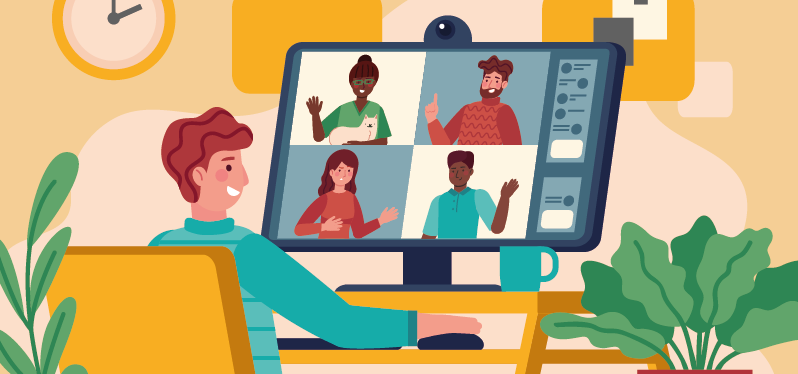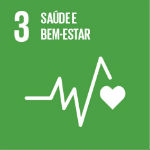Posted in: 09/28/2021
Burnout Syndrome, Depression and Suicide. It seems that companies have never had to worry as much about mental disorders among their workers as they do now.
Although many companies were already providing support programs to their teams even before the pandemic, with the fear of contamination, social isolation, and the transfer of almost all corporate activities to remote work, the situation seems to have become more complicated.
The decrease in the level of well-being, the lack of control over the workload, and the uncertainties of the pandemic have built a favorable scenario for the degradation of the mental health of employees. And, thereby, an increase in the risk of suicide, since the higher incidence of these disorders and their effects can also serve as strong influences for such extreme decision.
But how can these three factors – Burnout, Depression and Suicide – be linked? And how can we assess and lessen the impact of the first two on the lives of workers in their daily work, even in remote work, preventing the aggravation from leading to suicide?
We talked to Lucia Frigerio, a psychologist specialized in corporate services, and Renata Guirelli, coordinator of Synergia’s Organizational Human Development sector, to bring you the answers you will find in this special report on mental health. Check it out!
The World Health Organization (WHO) has defined Burnout Syndrome as a disorder exclusively linked to the professional context, a burnout caused by work. For the Organization, Burnout results from “chronic stress at work that has not been successfully managed” and is characterized by “feelings of exhaustion, cynicism or negative feelings related to their work, and reduced professional productivity.”
The syndrome can be caused by lack of acknowledgement at work, toxic professional environments with emotionally abusive actions, long and overloaded workload, and the fear of losing the job, intensified by the pandemic.
It is noteworthy that the World Bank recently released a report on the pandemic’s impact on the labor market in Latin America and in Caribbean, in which it estimates that more than 7.8 million people in Latin America have lost their jobs because of the pandemic. And, although the effects of the crisis have been felt more by less educated professionals, the fear of losing the job does not respect hierarchies – just like Burnout, which can reach any hierarchical level.

According to the Ministry of Health, the symptoms of the syndrome can be physical and emotional, such as headaches, insomnia, physical and mental tiredness, sudden mood swings, among others.
For Lucia Frigerio, a consulting psychologist at Synergia, the pandemic has enlightened the fact that people’s mental health may not have been doing so well already. She points to several factors that can cause changes in the way people relate to their work and make it have a major impact on mental health:
“The world of work is a very tough world. Work is one of the rights to which every person must have access. It is one of the ways to bring dignity to the person. But we also know that this is not what always happens, that dignity does not come so easily. ‘When force comes on the scene, right goes packing’ is a often repeated phrase. And, in my life within companies, we see managers who, if they have not harassed employees, have come very close to do so. We know of managers who think that competition is extremely beneficial to bring out the best in each person. Some border on tyranny. These are absurd things that we see in the name of having a good production and achieve goals.”
A survey released in 2019, long before the pandemic began, already indicated that 20 million Brazilians felt the impacts of Burnout, a number that represented one in five workers in the country.
At the time, the experts concluded that the worsening in the professional routine in several areas was driven by factors such as “the advancement of technologies, changes in the labor market and in society, and new business dynamics. Women were the most affected, accounting for 60% of the most severe cases.
The fact that Burnout Syndrome can evolve into a deep depression is one of the great concerns of these specialists. And the data on depression in Brazil and in the world also continue at an alarming pace.
Depression is considered a mental disorder that can affect people at any age. According to data estimated by the WHO, more than 300 million people suffer from the disease, which is considered the greatest cause of disability in the world.
In other words, it directly interferes with the daily activities that a person must or would like to do, since its most common symptoms are apathy, loss of energy and of the pleasure in activities, irritability, and others. Depressive episodes can range from mild, moderate, or severe, according to the symptoms and their intensities.
Experts indicate that several factors can contribute to the development or worsening of the disorder, among them genetic predisposition, chronic stress, traumatic events, and also social and environmental conditions.

In Brazil, according to research conducted by the University of São Paulo (USP), the cases of depression and anxiety increased during the pandemic. The study done with eleven countries indicated that Brazil has the most cases of anxiety (63%) and depression (59%).
For Lucia Frigerio, we need to pay attention to the signs that can indicate depression, and the best way to do this is to notice the people around us:
“Any and all signs in relation to people matter. We need to be aware of the people around us. What is different from what it has always been? If someone on your side changes their routine, will you notice? How is my self-knowledge and how attentive am I to how the other is and has always been? There are several things that indicate. The changes can be various, from isolation to irritability, from something more withdrawn to something more flustered. But to notice what has changed, we need to have effective exchanges.”
Identifying and treating depression is important because its worsening can lead to suicide, one of the leading causes of death in the world. According to WHO data, one in every 100 deaths is by suicide. In 2019, 97,339 people died by suicide in Americas, and estimates are that attempts may have been 20 times that number. Men account for 77% of all suicide deaths worldwide, and rates continue to rise.
Lucia points out that the care for the person at risk of suicide can be given in several ways, but the most effective way must combine the administration of medication and professional counseling, and never only the medication form.
“We need to be very careful with the person who is at risk of suicide, including regarding to medication. Medication alone is not enough, people need to get in touch with their suffering, they need to understand what is happening to them, go through therapy, and be able to feel cared for. And that care is within the field of psychological support.”
The importance of emotional accompaniment, mental health care, listening, and open spaces for communication is fundamental, because this care can make a difference in a person’s life.
This is why it is so necessary to increase the space to talk about mental health and open channels for workers to understand that it is not a problem to ask for help and to feel that they can count on a support network if they need it.
During the pandemic period, with teams working remotely and facing social isolation, many companies understood the importance of orienting workers to deal with the new situation and the mental triggers that could cause mental disorders.
In the case of Synergia, the challenge was to create a scenario that would allow interaction and listening, an opportunity to decompress from daily activities. A welcoming moment was needed for those teams that used to be so tight-knit in their field work with communities and suddenly found themselves isolated and stuck in online interactions.
The solution was the creation of the Emotional Support sessions, which took place from May to December 2020. In them, closed groups of up to 10 people meet for 2 hours a week (during working hours) and, through the mediation of psychologist Lucia Frigerio and psychologist Rafael Caldeira, talk about their worries, fears, hopes, and concerns.
The coordinator of Synergia’s Organizational Human Development (DHO) sector, Renata Guirelli, evaluates the idea and the work done:
“We thought about doing some work that could support people in this pandemic scenario and be a channel where they could ‘blow off steam’ a little, bring some of these feelings. So we talked to Lucia [Frigerio], because she is a reference at Synergia in conducting this group work and mediation. It was something very new and we had not seen anyone talking about it in other companies. I think we were very pioneering in that work.”
In March 2021, after many requests from the teams, came the desire to resume the work, but in a different way. It was then that the idea of the Conversation Circles came up. There are two 2-hour meetings a week, with the counseling of psychologist Lucia Frigerio, and people can talk about free themes that arise during the day.

The meetings reach an average of 50 to 60 people per circle, and the conversations proceed freely. But the attention to the participants does not end there. If the person feels the need to talk privately, or in cases in which the psychologist identifies a greater need for follow-up, the person can have a first appointment with her. Then, the person is advised to seek external psychological counseling.
“People can talk or just listen. It’s been amazing, it’s an environment in which people feel safe to talk. We have testimonials, which bring up very interesting discussions, some of them profound. The Conversation Circle held with the theme “Lilac August – Month of awareness for the end of violence against women” had one of the largest adhesions and brought very touching testimonials.”
Renata Guirelli
Talking about mental health within companies should not be a taboo, especially when we consider the many hours a day that are devoted to work. If knowing the people around us can be extremely important for us to notice the differences in behavior that may indicate depression or suicide risk, at this moment, when we are isolated, opening spaces for communication and interaction between people can be decisive.
For Lucia, the meetings are extremely important for stimulating self-knowledge and the possibility of looking for help for this process, besides representing an open channel for people to understand that asking for help is not a problem:
“One interesting thing that has happened since the Support, and we always hear in the Conversation Circle, is how much people have started therapy or resumed the one they had abandoned after these meetings. I recommend that people get to know a therapeutic process, understand what happens there. It would be very nice if companies would engage in this offer, even if it’s a path, a bridge or something temporary, so that they understand the importance of self-care and being self-aware, building relationships that bring more affection and that power of life.”
For Renata Guirelli, the differential is the fact that the company provides a moment for people to stop working during that period in order to participate in the meetings. And this exchange is also positive for the company itself.
“When we think of a company that provides this for its employees, we are talking about a differentiated company that really cares about people. I have been in the business for more than 20 years, and I think that a company’s greatest asset is its people. At Synergia this is even more important because we also deal with communities.”
It is important to point out that the actions carried out with the objective of caring for the mental health of workers, as well as the practices aimed at inclusion and representativeness, should also be part of the sustainable development initiatives that work as a basis for the ESG concept (concerning the best environmental, social, and governance practices for companies).
The promotion of mental health is even part of Sustainable Development Goal number 3, Health and Well-Being, proposed for Agenda 2030 by the United Nations (UN).
The care with the work environment and with the well-being of those who compose it have been highly discussed when we think about the attitudes necessary for companies to evolve in relation to their social factors. And this evolution goes directly through the understanding that, more than ever, companies need to incorporate the sustainability practices that can make a difference in the future of the base of the organizations, and this base is the people.

Sign up and receive our news.